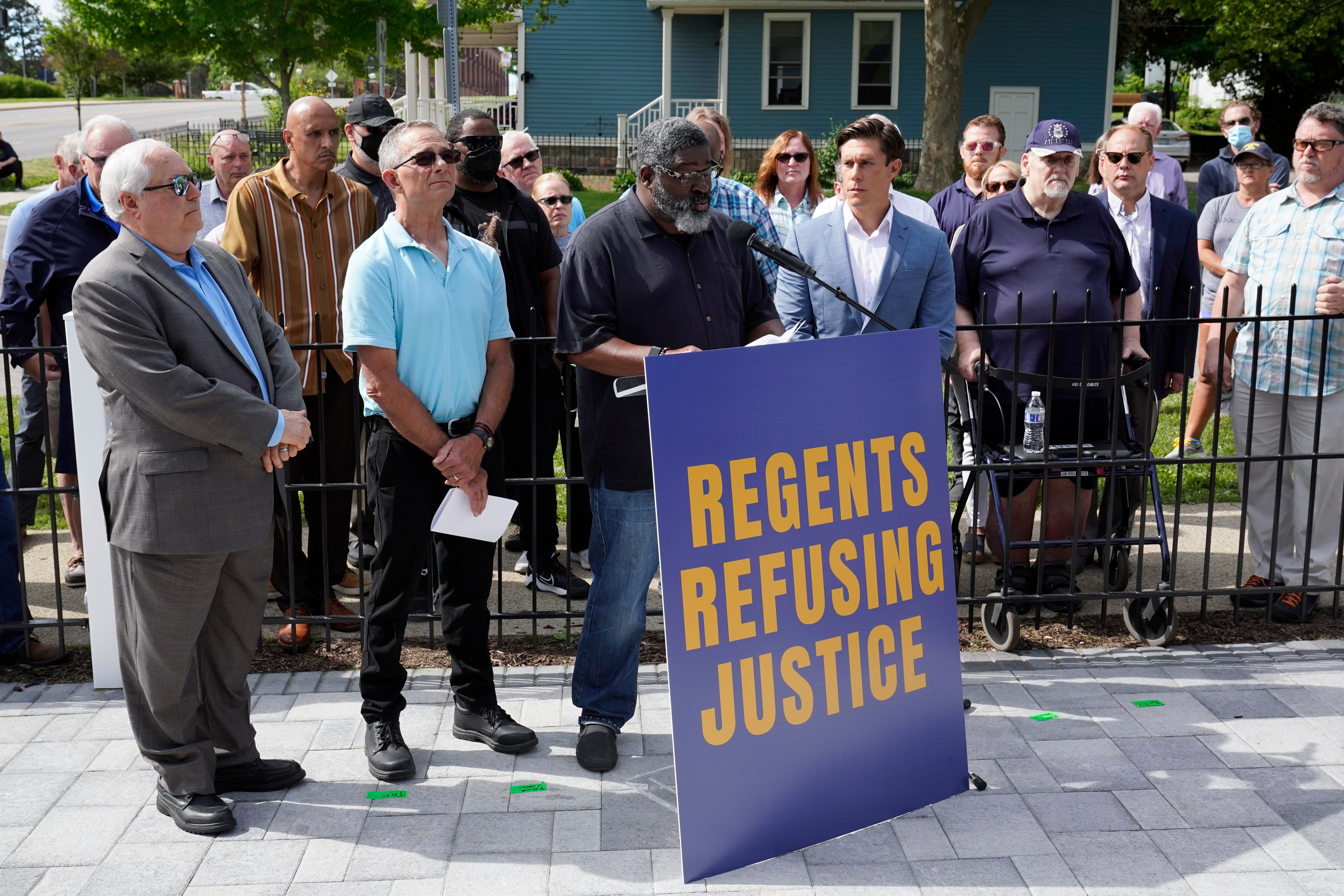Michigan bills would give sex abuse victims more time to sue
Michigan lawmakers are poised to consider bipartisan bills aimed at helping potentially thousands of sex abuse victims sue for damages, including those molested by a University of Michigan sports physician

Your support helps us to tell the story
From reproductive rights to climate change to Big Tech, The Independent is on the ground when the story is developing. Whether it's investigating the financials of Elon Musk's pro-Trump PAC or producing our latest documentary, 'The A Word', which shines a light on the American women fighting for reproductive rights, we know how important it is to parse out the facts from the messaging.
At such a critical moment in US history, we need reporters on the ground. Your donation allows us to keep sending journalists to speak to both sides of the story.
The Independent is trusted by Americans across the entire political spectrum. And unlike many other quality news outlets, we choose not to lock Americans out of our reporting and analysis with paywalls. We believe quality journalism should be available to everyone, paid for by those who can afford it.
Your support makes all the difference.State lawmakers are poised to consider bipartisan bills aimed at helping potentially thousands of sex abuse victims sue for damages, including those molested by a University of Michigan sports physician.
It is the second time since 2018 that the Legislature may overhaul laws in the wake of a major abuse scandal. Similar legislation was enacted following the conviction of Larry Nassar who sexually abused hundreds of female athletes under the guise of medical treatment, including at Michigan State University.
Under the new measures, victims of the late Dr. Robert Anderson at the University of Michigan and others would get additional time to bring lawsuits that might be barred by a statute of limitations. Government entities could not use the immunity defense if they knew or should have known of an accused's prior sexual misconduct and failed to intervene.
Similar government immunity legislation stalled three years ago — after Michigan State agreed to a $500 million settlement for Nassar's victims — amid pushback from universities, schools, municipalities, businesses and the Catholic Church over the financial implications of facing an unknown number of suits for old allegations.
“These survivors deserve their day in court,” said Rep. Ryan Berman, a Republican from Oakland County’s Commerce Township who is sponsoring the immunity bill.
The House Oversight Committee on Thursday will hold the first of likely multiple hearings on the measures. Among those expected to testify are former University of Michigan wrestler Tad DeLuca and football player Jon Vaughn.
“They get to tell their stories. I think they're so brave for doing that,” said Rep. Karen Whitsett, a Detroit Democrat whose bill would open a one-year window for sex assault victims to sue retroactively, regardless of the time limit.
In 2018, the law was changed so Nassar victims could sue retroactively and people who were sexually abused as children could pursue legal action until their 28th birthday or three years from when they realize they have been abused. Whitsett's legislation would expand the option to adults and let them file suit until whenever is later: 10 years from when the claim accrues, their 28th birthday or six years — instead of three — from when they realize they have been abused.
“We need to empower survivors. They need to have a platform to be heard on. They need the tools to be able to do that,” she said.
The university has acknowledged that assaults occurred. A report by a law firm hired by the school found that officials failed to stop Anderson, especially in the 1970s, despite hearing about assaults. The university is in mediation with lawyers who are seeking a financial settlement for at least 850 people, mostly men.
Attorneys who have sued say the statute of limitations can be paused because the school “fraudulently concealed” the abuse for years. But the bills could provide the victims more certainty and increase pressure for a resolution.
“It will help the U of M victims. But it will also help so many men and women out there who may have been abused by a medical professional where, because of the knowledge imbalance between a doctor and patient, may not have found out or realized it for a number of years later,” said Mike Cox, a former Michigan attorney general who is representing more than 150 of the plaintiffs.
___
Follow David Eggert at https://twitter.com/DavidEggert00